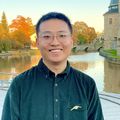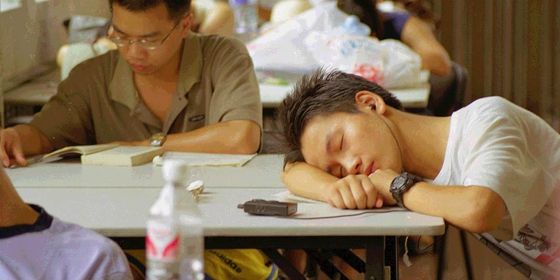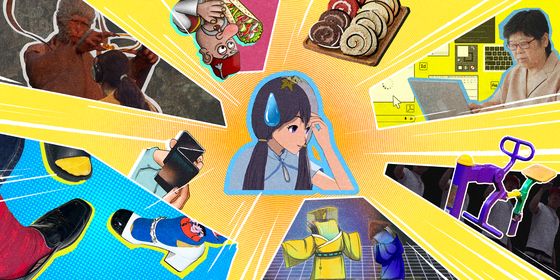With growing awareness, many in China are finding support online and viewing ADHD as a source of strength, but experts caution against the romanticization of the condition and over-reliance on internet diagnoses
“My duty is to help patients become normal. Isn’t that why you are here, seeing a doctor?”
“No. I don’t need to be ‘normal.’ What I expected from you was guidance on how to better ‘utilize’ myself, not to be treated as an ill person.”
So went the conversation between Vivi Zhang (pseudonym), a 27-year-old employee at an internet company in Shanghai, and her doctor during her Attention-Deficit/Hyperactivity Disorder, or ADHD, diagnosis. Seeing ADHD as an integral part of her potential and talent, Zhang had been unsettled by her doctor’s stance.
“My struggles stem from ADHD, but so does my energy, creativity, and quick thinking,” she tells TWOC.
Before her ADHD diagnosis, Zhang struggled with time management and was reliant on deadlines for productivity. She often daydreamed, misplaced things, and craved constant feedback to stay motivated. It was only in 2023 that she first heard about ADHD via a social media post listing common symptoms of adult ADHD. To her surprise, she identified with most of the diagnostic criteria. From that moment, she began researching ADHD online and seeking professional help.
Zhang is not alone. A growing number of adults in China are turning to social media for information about the condition, as well as support. A 2023 report by JD Health estimates that over 6 percent of children in China have ADHD. However, government data suggests that more than 90 percent of childhood cases go undiagnosed, and only a third of diagnosed children receive treatment. Meanwhile, China Daily reported in 2023 that at least 25.2 million adults in the country are affected by ADHD.
The stigma surrounding ADHD, often dismissed as an excuse for laziness and irresponsibility, along with a lack of understanding about the condition, has made it difficult to access proper diagnosis and treatment, with medications being scarce outside major cities. Social media has become an unexpected haven for many young people seeking help. On the lifestyle platform Xiaohongshu (Rednote), the hashtags #AdultADHD and #FemaleADHD have 24.6 million and 11.4 million views, respectively.
Read more about mental health issues in China:
- China's School Counseling Throes
- “You’re Just Bored”: China’s Depressed Teens Struggle for Understanding and Treatment
- What’s Ailing China’s Trauma-Response System?
Traditionally, ADHD has been framed as a deficiency, especially associated only with boys at a young age. Children with ADHD are often seen as mischievous or disobedient, prompting parents and teachers to respond with strict discipline.
However, ADHD, in reality, manifests as more than just a “lack of focus,” encompassing numerous cognitive and behavioral traits that shape daily life. It affects people of all ages and genders, making task initiation, switching between tasks, time management, and focusing on uninteresting subjects challenging. However, they can also become intensely absorbed in activities that they enjoy or are immediately rewarding, a symptom known as hyperfocus. Some also experience hyperactivity, fidgeting, and impulsivity. Studies have suggested that the condition is linked to functional impairments in certain neurotransmitter systems in the brain, particularly those involving dopamine and norepinephrine. These neurotransmitters play a crucial role in regulating attention, motivation, and impulse control.
David Ge (pseudonym), an office worker in his mid-30s living in Guangdong’s Shantou city, has been negatively impacted by ADHD symptoms for years. He struggles to stay focused and feels overwhelmed by starting important tasks. Despite recognizing his symptoms for years, he lacked the courage to travel alone for a formal diagnosis, as specialists were only available in big cities. “Ten years ago, when I first encountered the concept of adult ADHD, there was very little information accessible in Chinese, nor did any mutual-aid communities,” Ge says.
In 2024, after reading various personal stories of adults diagnosed with ADHD online and learning that his local hospital had begun offering ADHD diagnoses for adults, he finally saw a doctor. While there was still a shortage of specialists in Shantou, with consultations limited to just 15 to 25 minutes compared to the 60-minute sessions in cities like Shanghai and Guangzhou, his diagnosis brought a sense of validation. ”Many things in my past finally made sense,” he tells TWOC.
Ge initially kept his diagnosis a secret, fearing judgment due to widespread misunderstandings of ADHD. His parents also refused to accept it, concerned about the social impact on his reputation. Fortunately, he found support in a small WeChat group for adults with ADHD in his city. What began as a three-person chat grew into a community of over ten members who meet for afternoon tea and exchange advice on diagnoses, doctors, and medication. Through this mutual-aid network, Ge found a space to connect with others who shared his experiences and gradually came to see ADHD as just one part of his life, not a defining limitation.
Recent scientific developments and public advocacy have also fostered a more inclusive, non-pathologizing perspective. Referred to as the neurodiversity paradigm, this approach views ADHD as a natural variation of the human brain rather than a disease or a deficiency.
After learning about this perspective from content creators online and books by psychologists, such as Driven to Distraction: Recognizing and Coping with Attention Deficit Disorder, Zhang has stopped blaming herself for lacking self-discipline or being lazy. She now recognizes these traits as part of her neurodiversity—she was simply born with a “non-normative” brain.
Prior to her diagnosis, Zhang had worked tirelessly to excel both academically and professionally—but at a great personal cost. “I was locked in a struggle with myself—feeling stuck during the day and compensating with sleepless nights. I didn’t allow myself to fail,” says Zhang.
Eventually, her condition worsened to the point where she had to seek medical help. She was diagnosed with severe anxiety, moderate depression, mild mania, and suspected ADHD tendencies in 2023.
“Receiving an ADHD diagnosis was the most important step in my self-healing journey,” says Zhang, who was formally diagnosed soon after it was first suspected. For the first time, she had a framework with which to understand the challenges she had faced throughout her life. However, despite her newfound clarity, many people around her failed to grasp her unmasking. “I expected my friends to sympathize,” she says, but many dismissed her struggles as a way to explain away laziness or procrastination.
One summer day in 2024, she found herself mentally paralyzed in her office, struggling to prepare for a presentation with a looming deadline. “I’d had a good night’s sleep and even gone to the gym that morning. But suddenly, I couldn’t proceed with my work at all,” she says. Frustrated and anxious, she decided to share her experience online, making several posts on Xiaohongshu.
To her surprise, her posts struck a chord with other users, sparking an outpouring of responses from individuals who had experienced similar ADHD symptoms and struggled with self-criticism. Zhang came to realize that what she once viewed as her “personal uniqueness” was, in fact, a shared experience among neurodivergent individuals. This realization inspired her to create an online ADHD community for young people like her, providing a space to express their challenges and celebrate their achievements.
Since then, Zhang has become an active content creator, sharing professional insights alongside personal strategies for how to live with ADHD. Her perspective—rejecting pathologization, embracing creative solutions, and celebrating self-uniqueness—has resonated deeply. She has since amassed over 22,000 followers, and her posts garnered over 25,000 reactions.
Zhang also launched a group chat where followers could seek support and encouragement from the community. By the end of March 2025, the group had nearly 500 members. She encourages them to share freely and verbalize their struggles: “The moment you articulate how you’re stuck, the problem is already half solved,” she tells TWOC.
Through discussions within her ADHD community, Zhang has learned to embrace her ADHD traits rather than fight against them. “Living with ADHD is all about finding our own ‘manual,’” she concludes. She now consciously structures her daily life to be more purposeful, implementing real-world strategies, like asking her manager to set smaller, manageable deadlines to boost her productivity at work. She also allows herself to take breaks and seek creative solutions. “There are far fewer battles against myself now,” she reflects.
Zhang now views her ADHD traits as “gifts,” focusing on amplifying their positive aspects, particularly the ability to hyperfocus on tasks that deliver quick feedback or call upon her creativity and passion. She decides to align her future planning more closely with her strengths, rather than forcing herself to meet societal expectations of being a perfectly self-disciplined person.
However, as more people like Zhang share ways to best utilize their “gifts” online, some caution against the romanticization of ADHD—framing it as a superpower linked to intelligence while overlooking its real challenges. Dr. Zhang Yana, an autistic neuroscience researcher better known online as Dr. Qingshan, founded the knowledge platform Qingshan Neuro in 2016 to combat these misconceptions, including the trend of casually claiming ADHD for social media clout and its mislabeling as a “trendy illness,” which fuels stigma and misinformation. Her platform, which explains diagnostic and intervention guidelines and curates and generates support resources, has become a valuable source of expert information for people like Ge, who have limited access to licensed specialists. She has also built up a nationwide mutual-aid community through WeChat group chats.
Dr. Zhang also recognizes the risks of relying solely on online information for diagnosis and treatment. “Self-diagnosis is just the beginning of self-help. ADHD symptoms may result from other conditions. Therefore, seeking a professional diagnosis is very important,” Dr. Zhang tells TWOC. “For some, medication isn’t necessary. But for those struggling, the right treatment can be life-changing.”
She believes that ADHD treatment should be as necessary as glasses are for a nearsighted person. However, access to medication remains a challenge in China. According to Ge, Concerta, a key ADHD medication imported from the US, has been in short supply for months in Shantou, his home city, and other smaller cities due to strict regulation of psychoactive drugs and growing demand. Some doctors recommend traveling to resource-rich cities like Shenzhen to obtain it, but financial constraints make this impractical for many. Even though Concerta has been partially covered by national health insurance since 2023, Ge says, “Depending on my dosage, it can still cost around 450 to 1,400 yuan per month after insurance in my city. For many individuals not covered by employee health insurance, the cost of medication is even higher.” As a result, Ge has opted for a more affordable alternative despite its lower efficacy.
Dr. Zhang has been advocating for legislation that balances the regulation of controlled substances with ensuring easier access to treatment for individuals with ADHD. Volunteers on her platform have helped to create a database of ADHD-friendly hospitals and doctors across China based on first-hand experience. Dr. Zhang also encourages members to share their life experiences, which now form the core of the platform’s content, challenging stereotypes and highlighting individual differences in ADHD.
“Some individuals with ADHD face workplace complaints due to overlooked details caused by attention deficits, while others struggle with addictive or impulsive behaviors. But what they all seek is to improve their quality of life,” says Dr. Zhang.
In recent years, the country has launched initiatives like ADHD Awareness Week, held every April or May, to raise awareness and enhance support. The concept of neurodiversity—depathologizing the condition—also appears more frequently now in the official media and in medical institutions’ advocacy. Actions have also begun to address the shortage of specialists and limited access to medication. For example, China’s National Medical Products Administration (NMPA) issued provisional guidelines for ADHD clinical trials in 2021 to promote the development of medications.
Alongside these state-led efforts, the rise of online ADHD mutual-aid communities in China reflects a positive shift toward inclusivity and understanding. As Dr. Zhang emphasizes, the ultimate goal is for more people with ADHD to receive early diagnoses and proper medical care, enabling them to live in a world free from stigma and to navigate challenges in their relationships, academics, and careers more effectively. “I hope the next generation with ADHD experiences less suffering than those before them,” says Dr. Zhang.
















